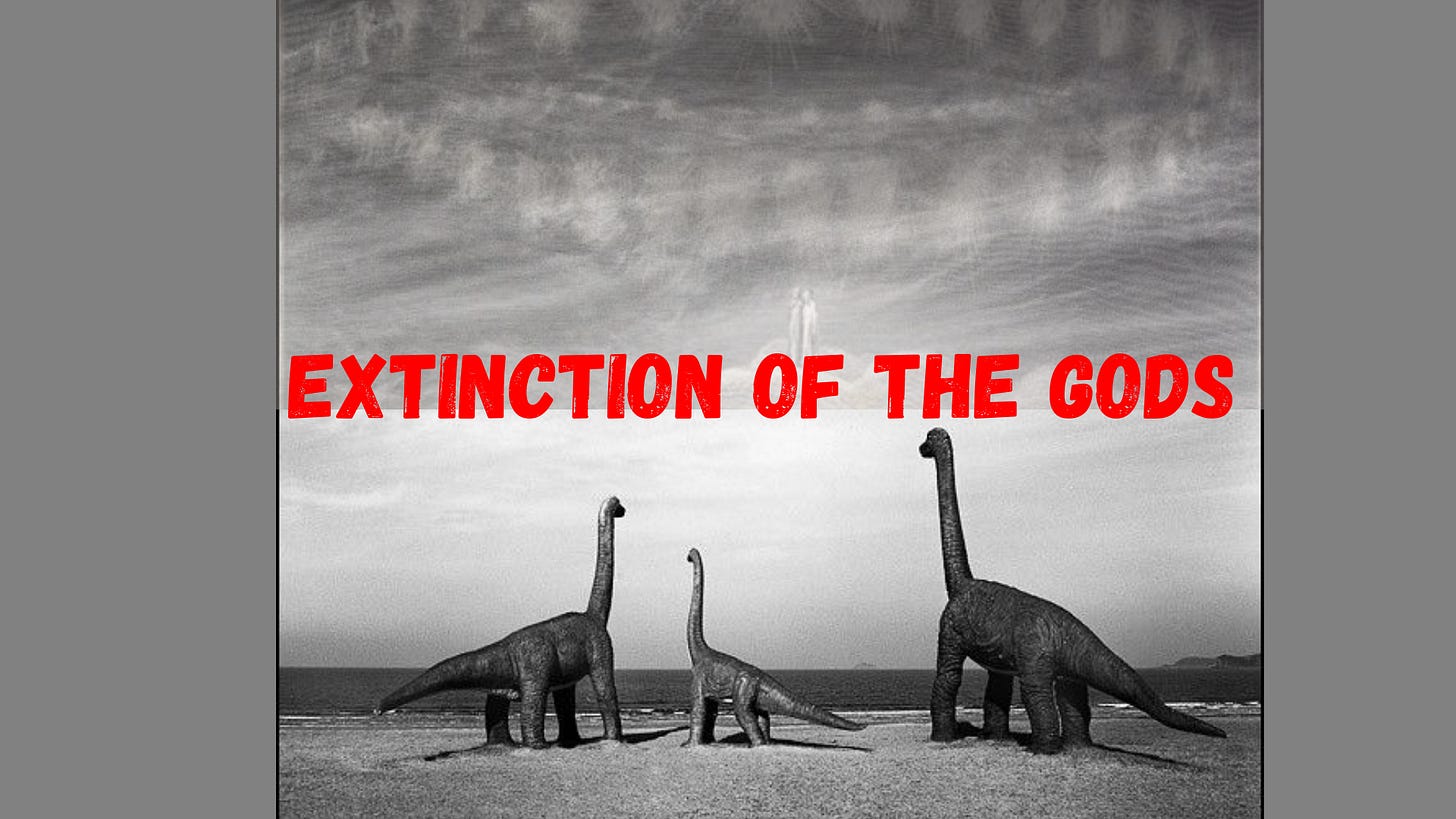Since around 1500, humans have caused the extinction of at least 881 animal species…
Extinct is a much stronger statement than we think. I hear it and honestly I don’t realize the gravity of this statement. I had never given myself the time to think about what this ecocide really meant. Because it is more than that, it actually feels like animal genocide.
A whole race erased never to exist anymore.
So, who is the real “untouchable being” here? Animals are often times stronger than us, faster than us, but we manage to catch them and use our resources to defeat them.
And humans have not only done it animals. We’ve done it to ecosystems, cultures, languages. We’ve tried to do it do a part of ourselves, more than once.
What is the limit to this attitude? Or is there one at all?
It really doesn’t seem like there is one. Humans can kill animals stronger than them. And somehow, they can challenge what once thought was the most powerful being.
The most respected, loved, feared, divine beings. The ones temples were built for, and the ones that shaped entire cultures.
The gods. Not Jesus, not Ganesha, not Allah or Yahweh.
I mean Zeus, Anubis, Tlaloc, Odin, once the most respected, loved, feared and divine beings. The ones temples were built for, and the ones that shaped entire cultures.
Did we kill them by simply… forgetting?
Today, they no longer reign in the heavens they once ruled, not because they vanished, but because we stopped calling them there. Their stories have been silenced or twisted, their altars are no longer praised, but rather touristed. And their civilizations chose newer gods.
Their names live on only in whispers, symbols, or in the distant echoes of human imagination.
This fading is its own kind of extinction. Not of flesh and blood, but of spirit and meaning. The gods didn’t die; they were abandoned. Their heavens emptied by our silence.
And it wasn’t simply that new gods were imagined, it happened over centuries. Through the slow erosion of memory and the rewriting of meaning.
Through war, conquest, collapse and conversion.
Often, it was the gods of war themselves: Ares, Sekhmet, Tyr, Huitzilopochtli, who led the charge.
They didn’t just witness the flames. They inspired them.
They rode at the front of armies, blessed the spilling of blood, demanded sacrifice.
And in doing so, they helped set fire to the very temples built in their name.
Where are they all now?
They did not fall in battle, nor were they defeated by a greater force. They were thought to be immortal. Their end did not come with fire and thunder, but with silence. Slowly, across centuries, they were abandoned, simply forgotten.
Ares may have disappeared in the smoke of a war no one thought to dedicate to him. Zeus, once ruler of thunder and sky, might still lurk in storms we no longer recognize. Anubis, guardian of the dead, could be wandering silent tombs abandoned by time. Tlaloc, bringer of rain and life, may wait in empty clouds that no longer fall where he is remembered. Odin, the all-seeing wanderer, might roam forgotten forests, listening for songs that have been lost. And Quetzalcóatl, feathered serpent of creation, could be slumbering beneath ruins no one visits with reverence.
Were they made of belief? And when belief vanished, did they go with it, fading like breath on glass?
Perhaps they never died. Perhaps they simply lost their place in the stories we tell. Their temples turned to dust, their symbols repurposed or erased, their myths rewritten or left to rot in footnotes. Not conquered, just cast aside. New gods, new heavens, new rules.
Now, they remain in fragments. A statue here, a constellation there.
Maybe they wait beyond the veil, not in bitterness but in stillness, not expecting worship from millions but listening for a single voice. Perhaps, like Jesus, they could return, if someone truly called for them. Not in jest, not as metaphor, but with praise deep enough to stir the old heavens.
One moment of memory strong enough to crack open the sky with an act of faith.
And if that happens, perhaps they are not so far away after all.




Yeah, where are they, where did they go, forgotten… there’s been an estimated 117 billion humans ever walking this planet. History is truly just a tiny sliver of all that ever truly happened, and forgetfulness is simply said the saddest part of the human condition faced with a vast ineffable infinity you can nod to every night looking up to the stars as your consciousness reflects the universe above. None of these gods would remain if ever humanity forgets how to remember and write about it. But then, which of the gods is truly worthwhile to still keep around in an age where y’all burst fireflies into the internets, hoping for some sort of warmth from the reflections of those whose eyes glimpsed your abstractions and your prose.
When everyone is a creator, who remains to applaud? We all have to—one soul at a time—learn and lean into following the white rabbits abound, presented to us while scrolling for compassionate moments, and applaud in reciprocity, for only a hopeless fool truly believes engaging in ‘wroiting’ (so told by Mr. Alan Moore) can still bear the fruitfulness of an enriched life when in essence all there is truly left is everyone else being relegated and organized to eek out a like or an upvote to another human’s sincere expression of their valor… before then moving on to the next tidbit of awe.
Anywhozzle, liked!